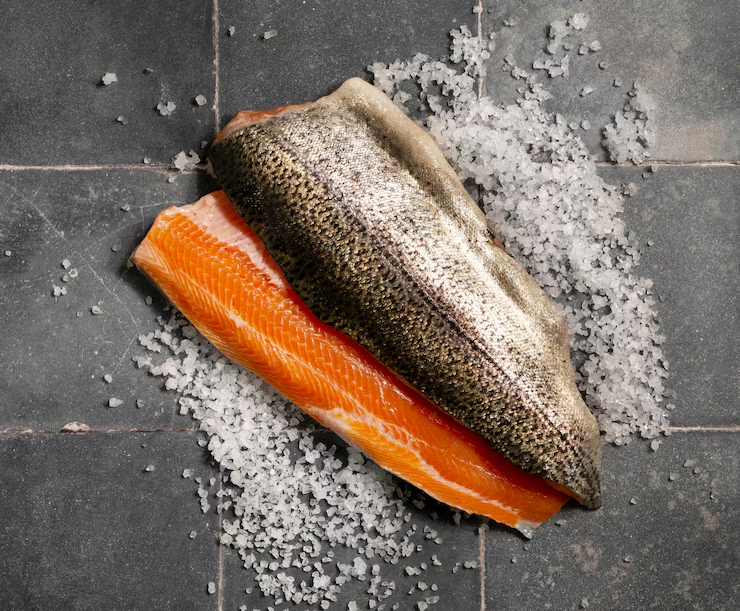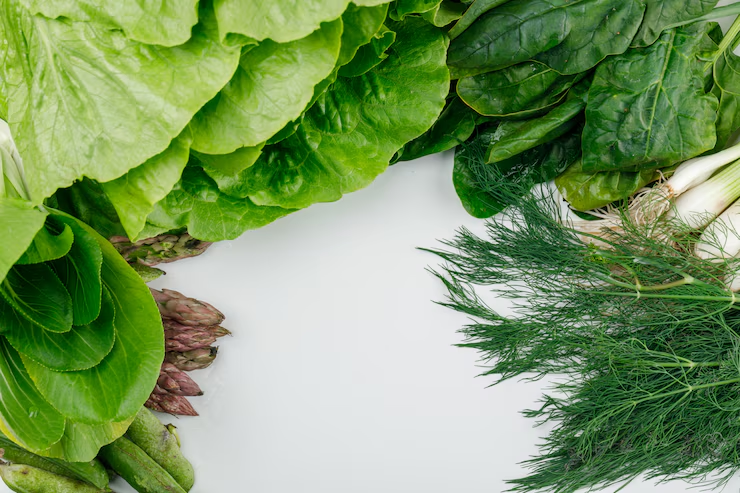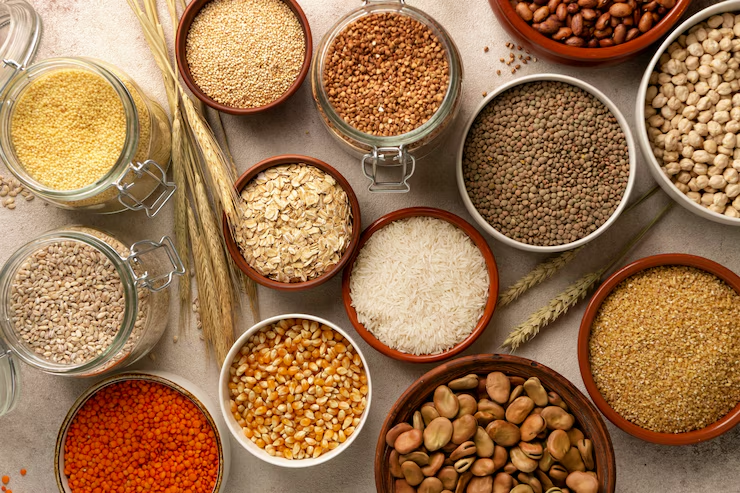Joint pain is a widespread issue affecting individuals of all ages, often resulting from aging, injuries, arthritis, or autoimmune conditions. This type of discomfort can significantly hinder daily life, affecting movement, flexibility, and overall well-being. Effective management of joint pain is essential to maintaining mobility and quality of life.
A well-rounded diet is a key component in joint pain relief. Certain foods, especially those with anti-inflammatory properties, can help alleviate discomfort. Omega-3 fatty acids, found in fish like salmon, and antioxidants, present in fruits such as berries, play a crucial role in reducing inflammation in the joints. Additionally, foods rich in vitamin C and vitamin D are vital for collagen production and bone health, contributing to overall joint function.
By including these nutrient-dense foods into your diet, you can support joint health and reduce the severity of pain over time. Understanding the importance of diet in joint health can empower individuals to manage their joint pain naturally, leading to improved long-term outcomes.
Understanding Joint Health

What Are Joints ?
Joints are the vital connections between bones that enable movement and flexibility in your body. They consist of several components, including cartilage, synovial fluid, ligaments, tendons, and bones. Cartilage plays a crucial role as a cushion, preventing bones from directly rubbing against each other during movement.
Synovial fluid, found within the joint capsule, provides lubrication to ensure smooth and easy movement. It reduces friction, allowing the joint to function efficiently and without pain. Together, these components work harmoniously to maintain healthy joint function, enabling you to move freely and comfortably.
There are several types of joints in the human body:
Ball-and-socket joints (e.g., hips and shoulders)
Hinge joints (e.g., knees and elbows)
Pivot joints (e.g., neck)
Gliding joints (e.g., wrists and ankles)
Each of these plays a unique role in enabling different types of movement.
Importance of Joint Health
Maintaining healthy joints is crucial for several reasons:
Mobility and Independence: Healthy joints are essential for smooth and easy movement, which is crucial for performing everyday tasks such as walking, climbing stairs, and even getting out of bed. Maintaining joint health ensures that you can remain independent and continue with your normal routine without discomfort or difficulty. Regular movement and proper joint function are key to maintaining mobility throughout life.

Prevention of Chronic Conditions: Proper joint health is vital for preventing the development of chronic conditions like osteoarthritis and rheumatoid arthritis. By taking care of your joints, you can reduce the risk of these degenerative diseases, helping to preserve mobility and minimize the need for medical interventions.
Pain Reduction: Healthy joints are less prone to inflammation and pain. Taking steps to promote joint health can lead to less frequent flare-ups of joint discomfort and improve overall comfort, leading to better daily functioning and fewer disruptions to your lifestyle.
Enhanced Quality of Life: Joint pain relief is a crucial factor in maintaining an active lifestyle. Pain-free joints allow you to engage in physical activities that promote better physical and mental well-being. When your joints are healthy, you’re able to enjoy life to the fullest, supporting overall quality of life.
As we age, the risk of joint issues increases due to wear and tear, decreased collagen production, and reduced physical activity. However, dietary choices can play a powerful role in preventing or minimizing joint pain.
Foods That Help Relieve Joint Pain
Fatty Fish
Fatty fish like salmon, mackerel, tuna, and sardines are excellent sources of omega-3 fatty acids, specifically EPA and DHA. These essential fats are known for their strong anti-inflammatory properties, which can help reduce swelling and discomfort in the joints. By including these fish in your diet, you can support joint health and promote natural joint pain relief.
The omega-3 fatty acids found in fatty fish help to decrease inflammation that can lead to joint pain, particularly in conditions like arthritis. Regular consumption of these fish can also improve mobility and reduce stiffness, contributing to better overall joint function. Including fatty fish in your meals is a simple and effective way to manage joint pain and improve your quality of life.

Benefits:
Reduce joint stiffness and pain
Improve mobility in people with arthritis
Lower levels of inflammatory markers in the blood
How to Include:
Aim for two servings per week
Use grilled or baked fish in salads, wraps, or as main dishes
Berries
Berries like strawberries, blueberries, raspberries, and blackberries are rich in antioxidants, especially anthocyanins and quercetin. These compounds are known for their powerful anti-inflammatory effects, which can help reduce swelling and pain in the joints. Including these berries in your diet can be a delicious way to support joint health and promote joint pain relief.
The antioxidants found in these berries work by neutralizing free radicals, which contribute to inflammation and joint discomfort. Regular consumption of these berries may help alleviate symptoms of joint pain, particularly in conditions such as arthritis. Adding a variety of berries to your meals can support overall joint health and contribute to a more active and pain-free lifestyle.
Benefits:
Inhibit inflammation
Slow down cartilage degradation
Support connective tissue health
How to Include:
Add to smoothies, oatmeal, or eat as a healthy snack
Leafy Green Vegetables
Leafy greens such as spinach, kale, collard greens, and Swiss chard are packed with essential vitamins like C and K, as well as antioxidants. These nutrients play a key role in supporting joint health by reducing inflammation and strengthening the body’s natural defense systems. Including these greens in your diet can contribute to joint pain relief and improved mobility.
The combination of vitamins and antioxidants found in these leafy vegetables helps protect the joints from oxidative stress and supports collagen production, which is vital for joint function. Regular consumption of spinach, kale, collard greens, and Swiss chard can help ease joint discomfort, reduce stiffness, and improve overall joint health, making them an excellent addition to any diet aimed at alleviating joint pain.

Benefits:
Vitamin C promotes collagen formation for cartilage repair
Vitamin K supports bone health
Antioxidants protect joints from oxidative stress
How to Include:
Use in salads, smoothies, or stir-fries
Nuts and Seeds
Almonds, walnuts, flaxseeds, and chia seeds are rich in healthy fats, fiber, and essential minerals like magnesium and selenium. These nutrients are vital for supporting joint health and can help provide joint pain relief. The healthy fats, particularly omega-3 fatty acids, help reduce inflammation, which is a major cause of joint discomfort.
In addition to their anti-inflammatory benefits, these seeds and nuts offer minerals that contribute to bone strength and overall joint function. Magnesium helps relax muscles and supports the function of cartilage, while selenium acts as a powerful antioxidant. Including these foods in your diet can aid in managing joint pain, reduce stiffness, and improve joint mobility, making them an excellent choice for anyone seeking natural ways to support joint health.
Benefits:
Omega-3 fatty acids reduce inflammation
Magnesium supports muscle and nerve function
Selenium may help prevent cartilage breakdown
How to Include:
Sprinkle on yogurt, oatmeal, or blend into smoothies
Olive Oil
Extra virgin olive oil is a key component of the Mediterranean diet and is widely recognized for its anti-inflammatory properties. Rich in oleocanthal, a compound that mimics the effects of ibuprofen, it helps reduce inflammation and can provide significant joint pain relief. Including extra virgin olive oil in your diet can help manage joint discomfort naturally.
The healthy fats in olive oil also support overall joint health by improving lubrication and protecting cartilage. Regular consumption of this oil can help decrease joint stiffness and pain, particularly for individuals dealing with conditions like arthritis. Adding extra virgin olive oil to your meals, whether in salads or as a cooking oil, is a simple and effective way to promote joint health and support pain-free movement.

Benefits:
Contains oleocanthal, which works similarly to NSAIDs
Reduces joint pain and swelling
Supports overall cardiovascular and metabolic health
How to Include:
Use as a dressing for salads or drizzle over roasted vegetables
Turmeric
Turmeric, the golden spice, is renowned for its powerful compound, curcumin, which offers potent anti-inflammatory and antioxidant effects. Curcumin helps reduce inflammation in the body, making it an excellent natural remedy for joint pain relief. Its ability to block inflammatory pathways can ease discomfort and improve mobility.
By including turmeric into your diet, you can support joint health and reduce swelling associated with conditions like arthritis. Curcumin’s antioxidant properties also protect the joints from oxidative damage, promoting long-term joint function. Whether used in cooking or taken as a supplement, turmeric is a simple yet effective way to manage joint pain and support overall joint health.
Benefits:
Reduces symptoms of arthritis
Inhibits inflammatory pathways
Enhances joint flexibility
How to Include:
Add to curries, soups, teas, or take as a supplement (combined with black pepper for better absorption)
Garlic and Onions
Garlic and onions are both packed with sulfur compounds and antioxidants that help combat inflammation. These properties make them excellent for supporting joint health and offering joint pain relief. The sulfur compounds in garlic and onions work by reducing inflammation and protecting tissues from damage, which can help alleviate joint discomfort.
Including garlic and onions in your diet can have a positive impact on joint function by easing pain and reducing swelling, especially in conditions like arthritis. Their antioxidant content also helps neutralize free radicals that contribute to joint degeneration. Adding these flavorful ingredients to your meals is a natural and effective way to manage joint pain and promote overall joint health, supporting a more active and pain-free lifestyle.
Benefits:
May reduce cartilage damage
Boost immune function
Decrease the severity of arthritis symptoms
How to Include:
Use in cooking as a base for soups, sauces, and stir-fries
Whole Grains
Brown rice, quinoa, oats, and whole wheat are rich in fiber and essential nutrients, making them excellent choices for promoting joint health and providing joint pain relief. The high fiber content in these whole grains helps reduce inflammation in the body, which can alleviate joint discomfort and support overall joint function.
In addition to fiber, these grains are packed with vitamins and minerals that support bone health and reduce the risk of joint degeneration. Regularly including brown rice, quinoa, oats, and whole wheat in your diet can help reduce joint stiffness, promote mobility, and improve your overall well-being. These nutrient-dense grains are a simple yet effective way to naturally manage joint pain and maintain a healthy, active lifestyle.

Benefits:
Reduce levels of C-reactive protein (CRP), an inflammation marker
Improve gut health, which is linked to reduced systemic inflammation
How to Include:
Replace refined grains with whole grains in meals
Green Tea
Green tea is packed with polyphenols and catechins, powerful antioxidants known for their strong anti-inflammatory effects. These compounds help reduce inflammation in the body, making green tea an excellent choice for joint pain relief. By calming inflammation, it can alleviate discomfort and support overall joint health.
Regular consumption of green tea may also help protect the joints from further damage by neutralizing free radicals that contribute to joint degeneration. The antioxidants in green tea promote better circulation and reduce swelling, helping to improve joint function. Incorporating green tea into your daily routine is a simple yet effective way to manage joint pain naturally and promote a more active, pain-free lifestyle.
Benefits:
Reduces cartilage breakdown
Improves bone and joint health
Slows progression of arthritis
How to Include:
Drink 1–2 cups per day; opt for freshly brewed over bottled varieties
Citrus Fruits
Oranges, lemons, limes, and grapefruits are rich in vitamin C, a vital nutrient that plays a key role in joint health. Vitamin C helps produce collagen, which is essential for maintaining the strength and integrity of cartilage and connective tissues. Including these citrus fruits in your diet can support joint function and provide natural joint pain relief.
Vitamin C also has antioxidant properties that help reduce inflammation and protect the joints from oxidative stress. Regular consumption of citrus fruits like oranges, lemons, limes, and grapefruits can help ease joint discomfort, reduce swelling, and improve mobility. Adding these fruits to your meals is an easy and effective way to support overall joint health and manage pain naturally.
Benefits:
Promotes collagen synthesis
Neutralizes free radicals that damage joint tissues
How to Include:
Enjoy as a juice (without added sugar), snacks, or in salads
Foods to Avoid for Better Joint Health
While some foods relieve joint pain, others can worsen inflammation and contribute to joint problems.
Foods to Limit or Avoid:
Processed Sugars: Trigger inflammation and increase risk of obesity
Refined Carbohydrates: Cause blood sugar spikes and promote inflammation
Red and Processed Meats: Contain high levels of saturated fats and advanced glycation end products (AGEs)
Fried Foods: High in unhealthy trans fats
Excessive Alcohol: Increases uric acid levels, potentially triggering gout attacks
Other Lifestyle Tips to Support Joint Health
While diet plays a significant role, a holistic approach offers the best results.
Stay Physically Active

Engage in low-impact exercises like walking, swimming, or cycling
Strengthens muscles around joints and maintains flexibility
Maintain a Healthy Weight
Reduces stress on weight-bearing joints (e.g., hips, knees)
Stay Hydrated
Synovial fluid in joints needs adequate hydration to function effectively
Get Enough Sleep
Rest allows for repair and regeneration of joint tissues
Conclusion
Joint pain doesn’t have to be a natural part of aging or chronic illness. With the right diet, you can help reduce inflammation, support cartilage health, and promote overall joint function. Incorporating anti-inflammatory foods into your meals can be a powerful way to provide joint pain relief and keep your joints strong and healthy.
Foods like fatty fish, berries, leafy greens, nuts, and turmeric are rich in nutrients and compounds that help fight inflammation and support joint health. These foods provide essential vitamins, minerals, and healthy fats that nourish the joints, reduce discomfort, and improve mobility. Avoiding pro-inflammatory foods can further enhance the effectiveness of your diet.
Remember, your body reflects what you eat. By choosing nutrient-dense, anti-inflammatory foods, you’ll give your joints the support they need to remain pain-free and strong. This simple approach can help you lead a more active, healthier life, free from the limitations of joint pain.
FAQs
- What foods help with joint pain relief ?
Foods rich in anti-inflammatory properties such as fatty fish, leafy greens, berries, nuts, seeds, turmeric, and green tea can help reduce joint pain and support joint health. - Can diet alone relieve joint pain ?
While diet plays a key role in joint pain relief, it works best when combined with regular exercise, proper hydration, and a healthy lifestyle. Severe joint issues may still require medical attention. - Are there specific nutrients important for joint health ?
Yes, nutrients like omega-3 fatty acids, vitamin C, vitamin D, calcium, magnesium, and antioxidants are important for reducing inflammation and maintaining healthy joints. - How long does it take to see results from dietary changes ?
Some people notice reduced joint pain within a few weeks, while for others it may take a couple of months. Consistency is important. - Should I avoid certain foods for joint pain relief ?
Yes, it’s best to limit processed foods, sugary snacks, and refined carbs, as they can increase inflammation and worsen joint pain.


